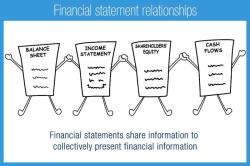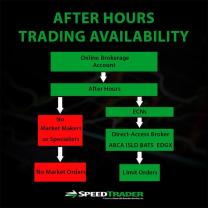What are the best dividend stocks to own?
Here’s a curated list of top dividend stocks to own in 2025, based on recent expert insights and authoritative sources:
Standout Dividend Stocks for 2025
1. Johnson & Johnson (JNJ)
Over 50–60 consecutive years of dividend increases, marking it a true Dividend King/Aristocrat .
With a diversified business across pharmaceuticals, medical devices, and consumer health, J&J delivers reliable free cash flow—$17 billion in 2024—supporting ~3% current yields .
2. Procter & Gamble (PG)
Raised dividends for about 67–68 consecutive years .
Offers ~2.5% yield, backed by essential brands and strong cash flow resilience .
3. Coca-Cola (KO)
With over 60 years of dividend increases, KO remains a stalwart in dividend investing .
Yields hover around
3%, supported by vast global presence and strong free cash flow ($11 billion in 2024) .
4. ExxonMobil (XOM) and Chevron (CVX)
Both oil majors have maintained multi-decade dividend growth: Exxon (~40 years), Chevron (~37+ years) .
Yield estimates: XOM ~4–5%, CVX ~4.3%, with reliable cash flows from energy operations .
5. Realty Income (O)
Known as "The Monthly Dividend Company," it issues monthly payouts and has increased dividends for decades .
Yields high—around 5.6%—and holds a portfolio leased to recession-resistant tenants on long-term contracts .
6. Verizon (VZ) and AT&T (T)
Verizon: ~6.2–6.5% yield, ~18+ years of dividend increases, stable cash flows and expanded fiber operations .
AT&T: ~4–5.8% yield, ~35 years of increases, improved dividend sustainability post-restructuring and spectrum acquisitions +1.
7. Altria Group (MO)
Offers exceptionally high yields (~7–9%) and a long dividend-growth streak (~56 years) .
While offering strong income, it carries industry-specific risks and regulatory concerns .
8. Ares Capital (ARCC) – a BDC
Generates 9–10% yields, lending to middle-market businesses, and has a track record of delivering strong total returns .
Higher yield comes with elevated risk and tax considerations typical of BDCs .
9. ConocoPhillips (COP) & Darden Restaurants (DRI)
Analysts favor ConocoPhillips for its 34% recent dividend hike, yielding ~3%, backed by a strong balance sheet and shareholder returns .
Darden Restaurants offers ~3% yield, raised guidance, and strong brand lift across its portfolio (Olive Garden, etc.) .
Summary Table
| Stock / Company | Yield Range | Key Strengths |
|---|---|---|
| J&J, P&G, Coca-Cola | ~2–3% | Legendary dividend growth streaks, stable cash flow |
| ExxonMobil, Chevron | ~4–5% | Strong energy cash flows, long-term payout records |
| Realty Income | ~5.6% | Monthly dividends, recession-resistant properties |
| Verizon, AT&T | ~4–6% | High yields, telecom stability, infrastructure play |
| Altria | ~7–9% | Top-tier yield, long-term consistency, industry risk |
| Ares Capital | ~9–10% | Very high yields, BDC exposure, higher risk |
| ConocoPhillips, Darden | ~3% | Recent dividend increases, solid fundamentals |
Additional Insights & Portfolio Strategies
Dividend Growth vs. High Yield:
Companies like J&J, P&G, and Coca-Cola offer moderate yields with decades of growth. High-yield names like Ares and Altria compensate with greater income—but come with higher volatility or regulatory risks +1.Diversification:
Invest across sectors—healthcare, consumer staples, energy, REITs, telecom—for stability and income. Realty Income and energy giants anchor different parts of the cycle .ETFs as Alternatives:
If you're looking for diversification and convenience, consider dividend-focused ETFs like Vanguard High Dividend Yield ETF (VYM) or Vanguard Dividend Appreciation ETF (VIG) .
Final Thoughts
Safety & Growth-minded: Consider J&J, P&G, Coca-Cola, Microsoft (low yield but growth + dividends) .
Income-focused: Realty Income, Verizon, AT&T, Altria, Ares Capital.
Balanced Picks: Energy giants and infrastructure names like Exxon, Chevron, ConocoPhillips, Darden combine income with growth potential.
What Are Some of the Best Dividend Stocks to Own?
The "best" dividend stocks are those that offer a combination of a solid dividend yield and a reliable history of paying and increasing dividends. These companies are often financially stable and have a history of consistent earnings. While specific stocks can change over time, some companies frequently mentioned for their dividend reliability include:
Consumer Staples: Companies like Procter & Gamble (PG) and Coca-Cola (KO) are known for their consistent dividends, as their products are in constant demand regardless of economic conditions.
Utilities: Utilities such as American Electric Power (AEP) often have stable cash flows and are reliable dividend payers.
Technology: Even in tech, some established companies like Microsoft (MSFT) have become known for their dividend growth.
Energy: Companies like Chevron (CVX) and ExxonMobil (XOM) have a long history of paying dividends.
How to Identify High-Yield Dividend Stocks?
Identifying high-yield dividend stocks requires more than just looking at the dividend percentage. A high yield can sometimes signal that a company's stock price has fallen, potentially indicating financial trouble. To identify good high-yield stocks, you should look at several key metrics:
Dividend Yield: This is the annual dividend per share divided by the current stock price. A high number is attractive, but should be checked against other factors.
Dividend Payout Ratio: This is the percentage of a company's earnings paid out as dividends. A payout ratio that is too high (e.g., over 75%) may be unsustainable, as it leaves little room for the company to reinvest in its business or to withstand a downturn.
Dividend History: Look for companies that have a long track record of consistently paying and, ideally, increasing their dividends. Dividend Aristocrats are a group of S&P 500 companies that have increased their dividends for at least 25 consecutive years.
Financial Health: Examine the company's free cash flow, debt-to-equity ratio, and earnings growth to ensure its financial stability.
What Are the Risks of Investing in Dividend Stocks?
While dividend stocks are often seen as a safer investment, they are not without risks.
Dividend Cuts: Companies can reduce or eliminate their dividends during economic downturns or if their financial health deteriorates. A dividend cut can also cause a significant drop in the stock's price.
Limited Growth Potential: Many high-dividend companies are mature businesses in stable industries. They often reinvest less of their profits back into the company, which can lead to lower stock price appreciation compared to growth stocks.
Interest Rate Risk: When interest rates rise, dividend stocks can become less attractive to investors who can get a similar or better return from safer investments like bonds. This can lead to a decline in dividend stock prices.
"Yield Traps": A seemingly high dividend yield can be a red flag. If the stock price has plummeted due to underlying business problems, the dividend yield will appear artificially high. Investing in such a company can lead to significant capital losses.
How Do Dividend Stocks Provide Passive Income?
Dividend stocks provide passive income because you don't have to do anything to receive the payments once you own the shares. When a company earns a profit, its board of directors may decide to distribute a portion of those profits to its shareholders in the form of a dividend. These payments are typically made on a quarterly basis and can be received as cash deposited directly into your brokerage account. The income is "passive" because it's a regular cash flow generated from your investment without requiring any active work on your part. You can either take the cash or reinvest it to buy more shares, a process known as dividend reinvestment, which can help your investment compound over time.
What Are Examples of Reliable Dividend-Paying Companies?
Reliable dividend-paying companies are often characterized by their long history of consistent payouts and their stable business models. They are a core part of many investors' portfolios.
A prime example is the list of Dividend Aristocrats, which includes companies from the S&P 500 that have increased their dividend for at least 25 consecutive years. Examples of such companies include:
Johnson & Johnson (JNJ): A pharmaceutical and medical device giant with a long history of paying dividends.
Coca-Cola (KO): A global beverage company known for its brand recognition and consistent profits.
Procter & Gamble (PG): A consumer goods company with a diverse portfolio of household brands.
Walgreens Boots Alliance (WBA): A large pharmacy chain that has a history of consistent dividends.
Another group, the Dividend Kings, are even more exclusive, having increased their dividends for at least 50 consecutive years. These companies are considered highly reliable due to their exceptional track record.












